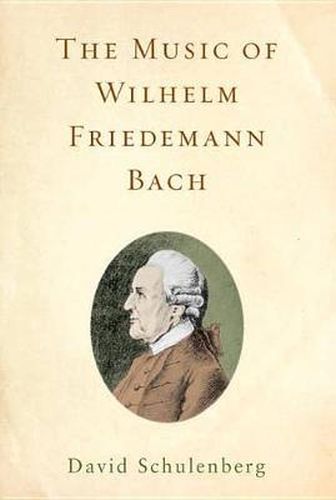Readings Newsletter
Become a Readings Member to make your shopping experience even easier.
Sign in or sign up for free!
You’re not far away from qualifying for FREE standard shipping within Australia
You’ve qualified for FREE standard shipping within Australia
The cart is loading…






The first-born of the four composer sons of Johann Sebastian Bach, Wilhelm Friedemann was often considered the most brilliant. Yet he left relatively few works and died in obscurity. This monograph, the first on the composer in nearly a century, identifies the unique features of Friedemann’s music that make it worth studying and performing. It considers how Friedemann’s training and upbringing differed from those of his brothers, leading to a style that diverged from that of his contemporaries.
Central to the book are detailed discussions of all Friedemann’s extant works: the virtuoso sonatas and concertos for keyboard instruments, the extraordinary chamber compositions (especially for flute), and the hitherto-neglected vocal music, including sacred cantatas and a remarkable work in honor of King Frederick the Great of Prussia. Special sections consider performance questions unique to Friedemann’s music and provide a handy list of his works and their sources. Numerous musical examples provide glimpses of many little-known compositions, including a concerto ignored by previous students of Friedemann’s music, here restored to hislist of works.
David Schulenberg, Professor of Music at Wagner College in New York City, has performed much of W. F. Bach’s output on harpsichord, clavichord, and fortepiano. His previous writings include The Keyboard Music of J. S. Bach and The Instrumental Music of C. P. E. Bach.
$9.00 standard shipping within Australia
FREE standard shipping within Australia for orders over $100.00
Express & International shipping calculated at checkout
The first-born of the four composer sons of Johann Sebastian Bach, Wilhelm Friedemann was often considered the most brilliant. Yet he left relatively few works and died in obscurity. This monograph, the first on the composer in nearly a century, identifies the unique features of Friedemann’s music that make it worth studying and performing. It considers how Friedemann’s training and upbringing differed from those of his brothers, leading to a style that diverged from that of his contemporaries.
Central to the book are detailed discussions of all Friedemann’s extant works: the virtuoso sonatas and concertos for keyboard instruments, the extraordinary chamber compositions (especially for flute), and the hitherto-neglected vocal music, including sacred cantatas and a remarkable work in honor of King Frederick the Great of Prussia. Special sections consider performance questions unique to Friedemann’s music and provide a handy list of his works and their sources. Numerous musical examples provide glimpses of many little-known compositions, including a concerto ignored by previous students of Friedemann’s music, here restored to hislist of works.
David Schulenberg, Professor of Music at Wagner College in New York City, has performed much of W. F. Bach’s output on harpsichord, clavichord, and fortepiano. His previous writings include The Keyboard Music of J. S. Bach and The Instrumental Music of C. P. E. Bach.